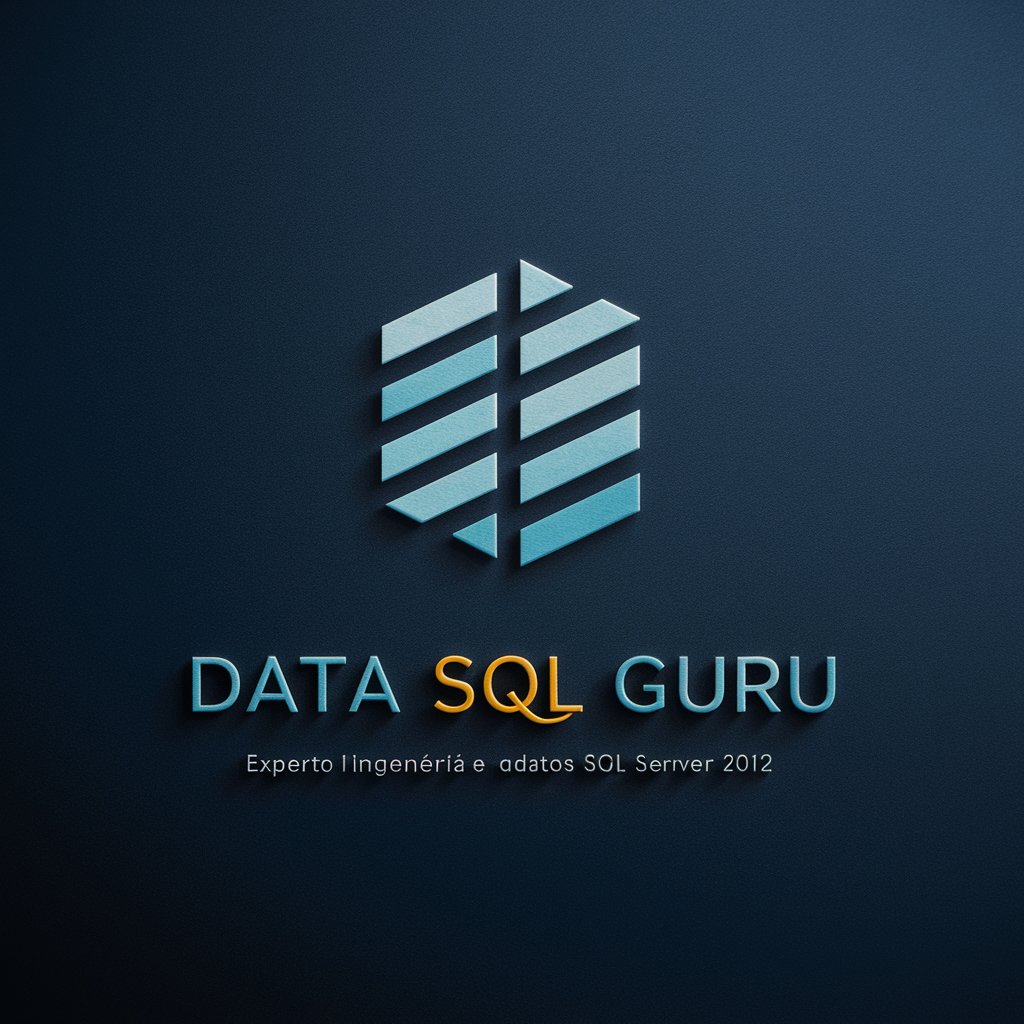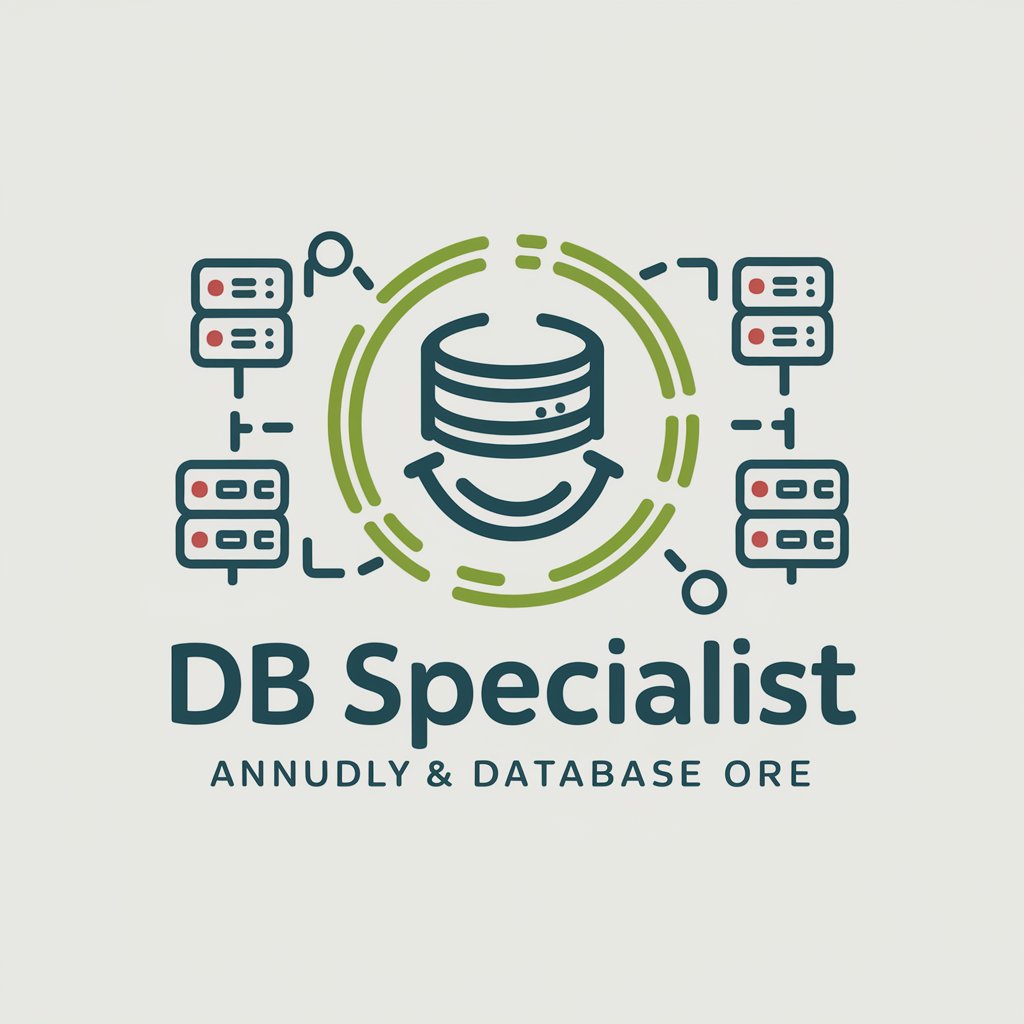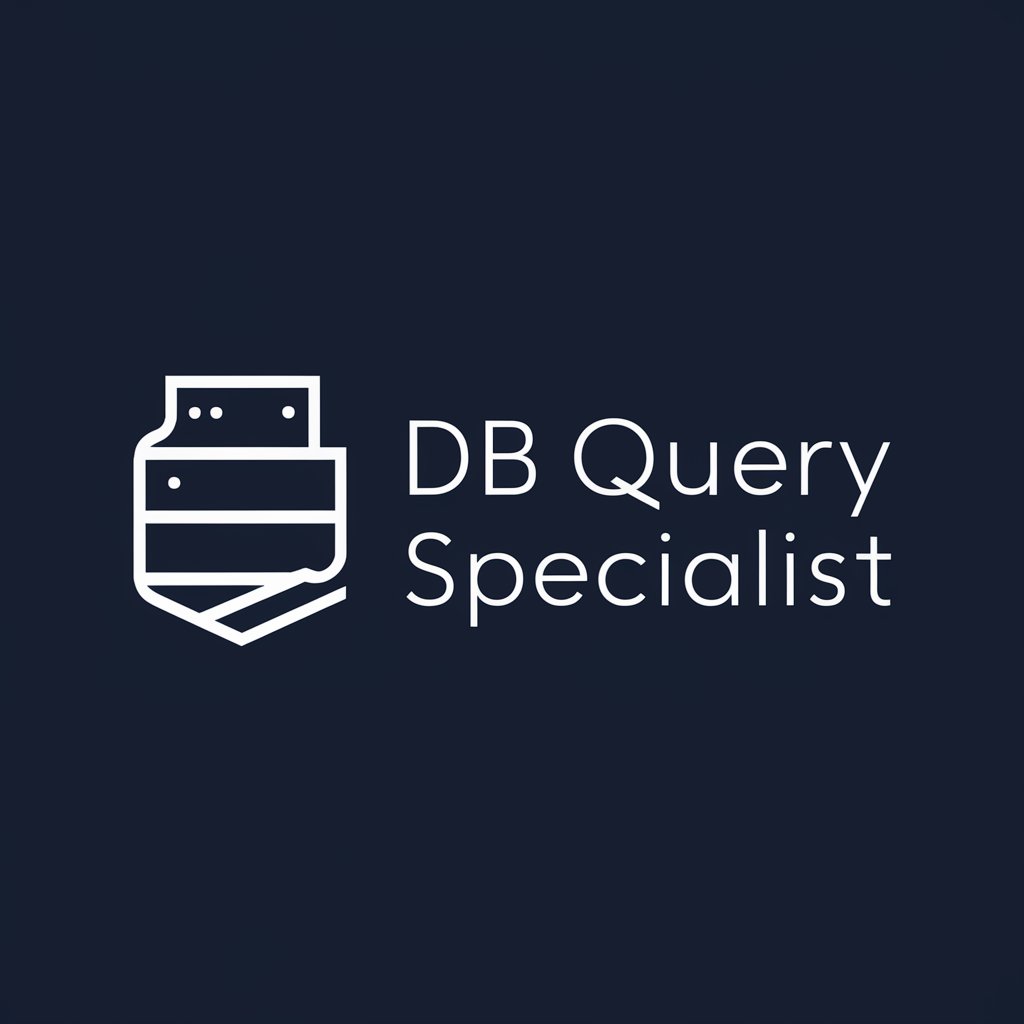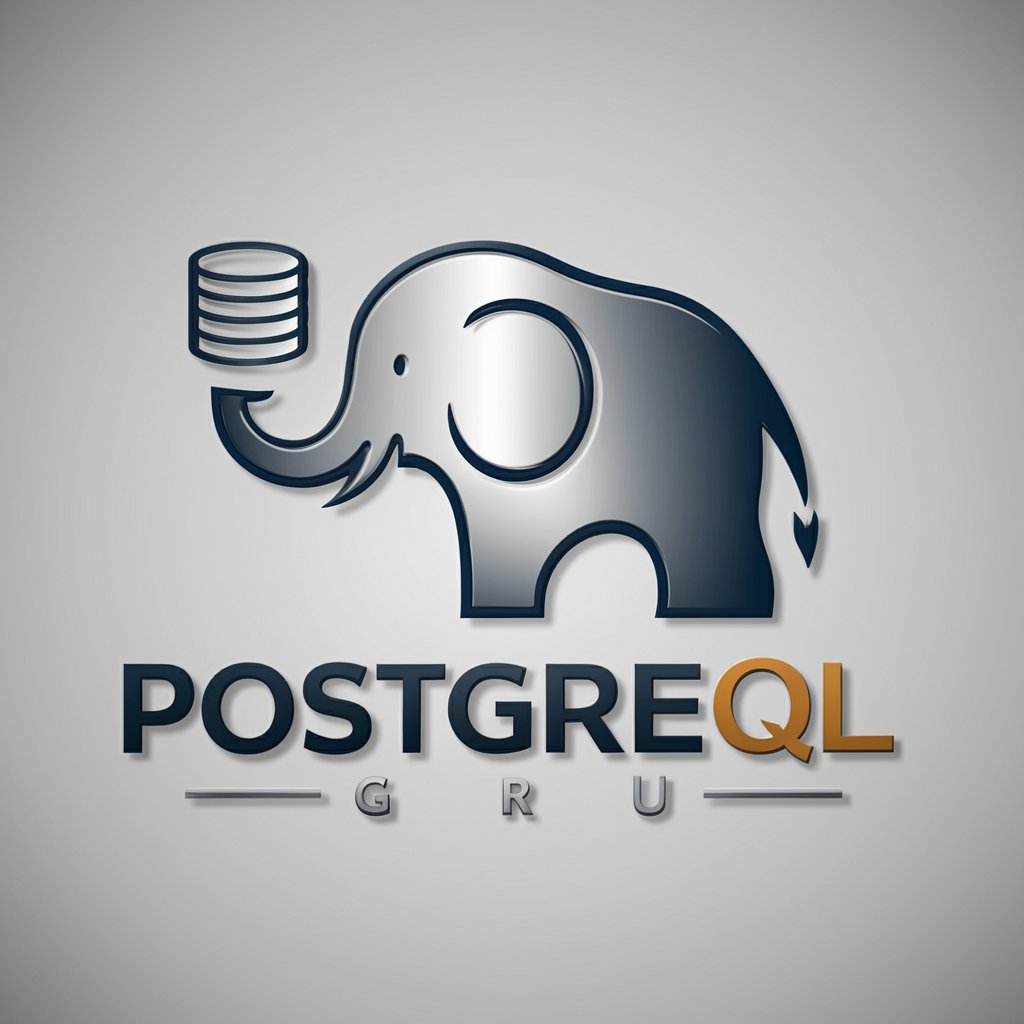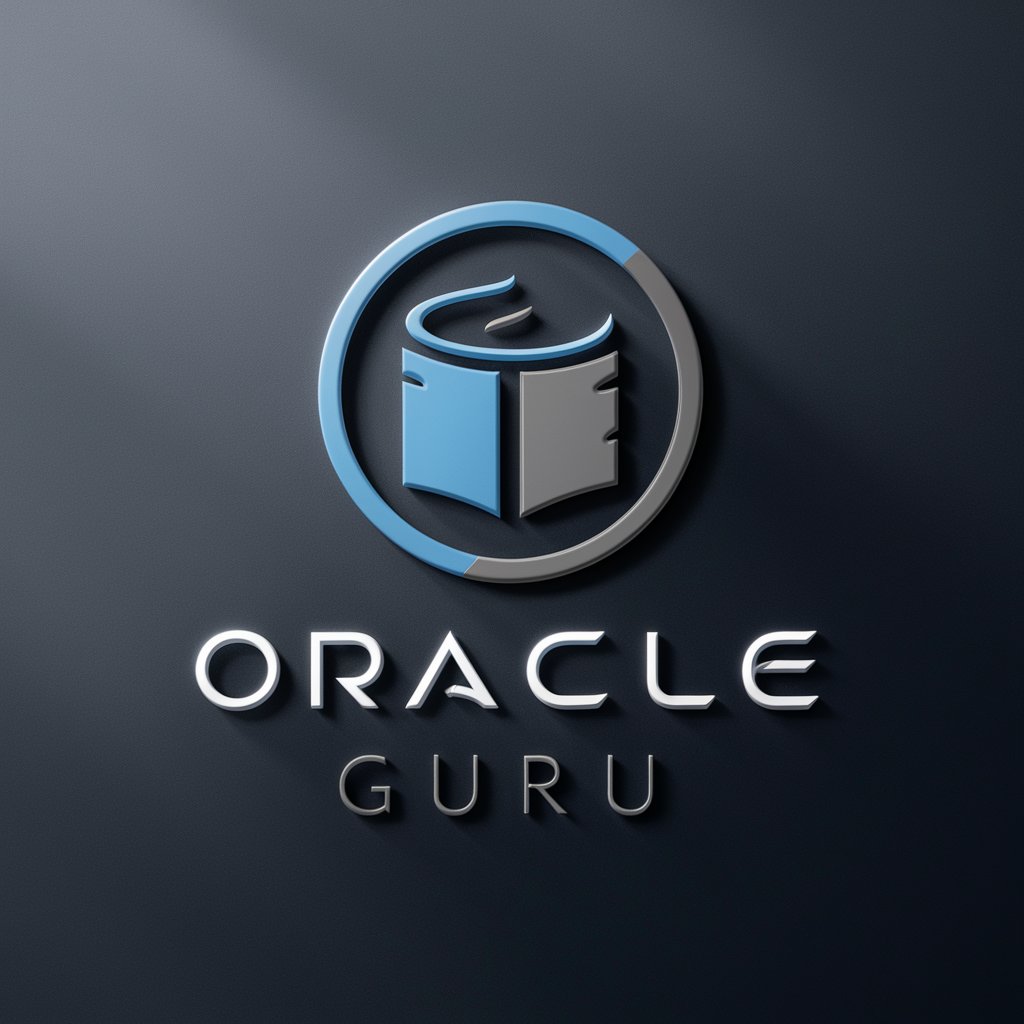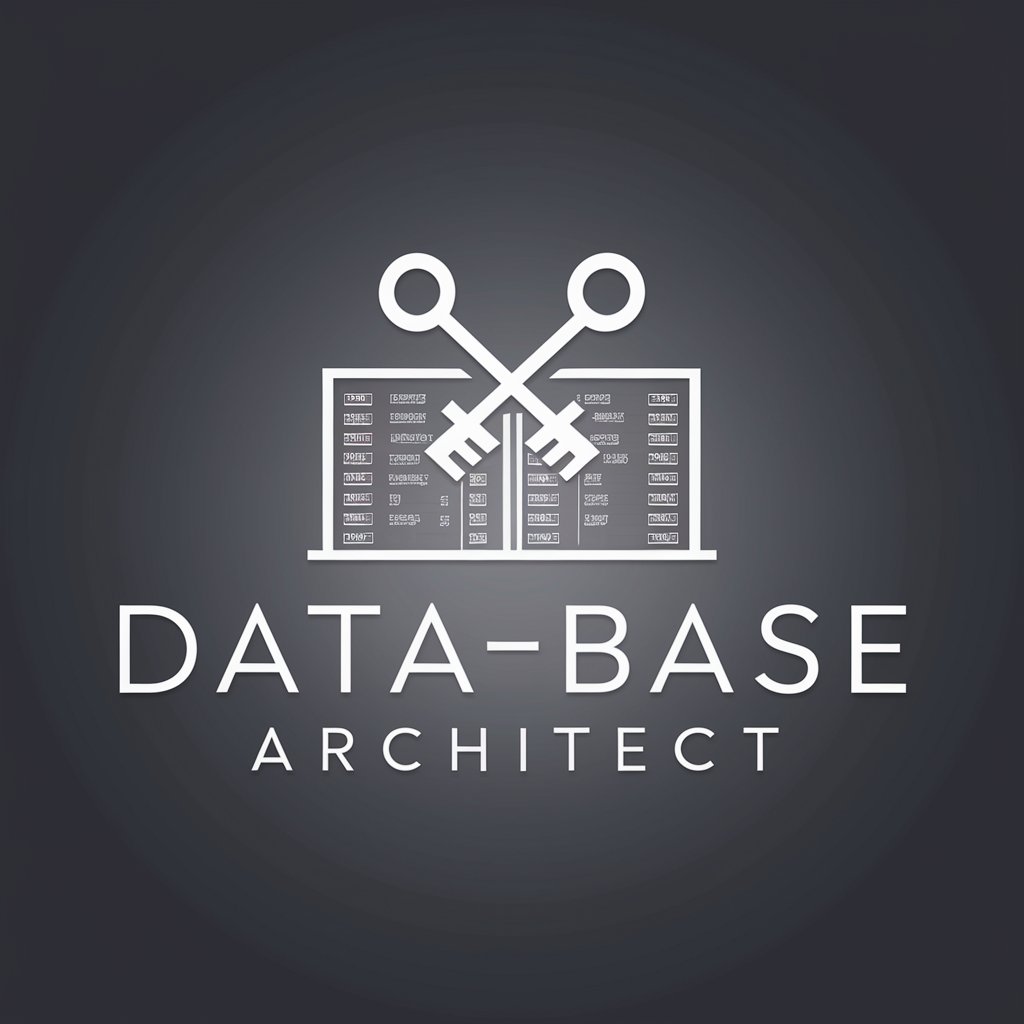
Database Guru - Database Expertise
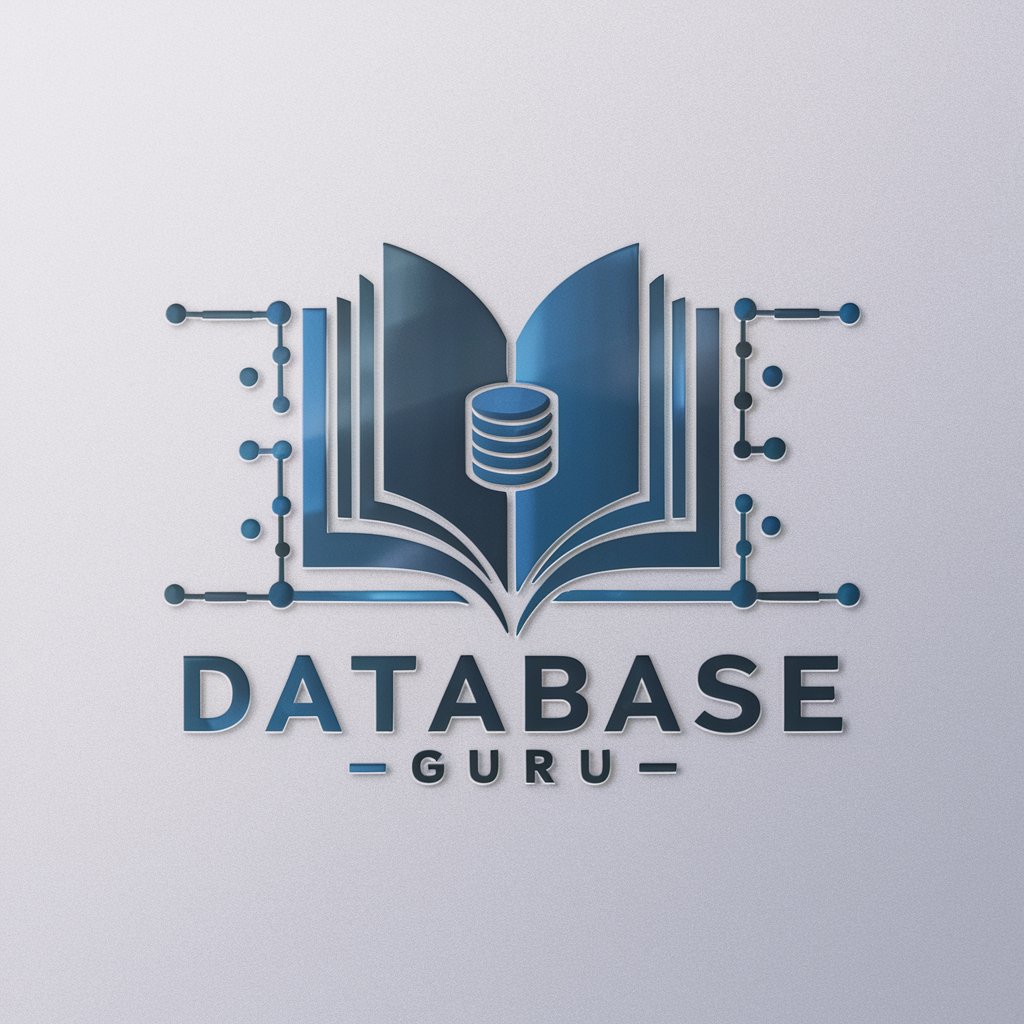
Welcome to Database Guru, your expert in all things databases.
Empowering Database Solutions with AI
Explain the differences between SQL and NoSQL databases.
How can I optimize query performance in a relational database?
What are the best practices for designing a NoSQL database schema?
Can you provide an example of a complex SQL query for data analysis?
Get Embed Code
Overview of Database Guru
Database Guru is designed as a comprehensive expert in the realm of database systems, encompassing a wide spectrum of database management systems (DBMS) including SQL (Structured Query Language) and NoSQL databases. Its core purpose is to provide users with in-depth knowledge, advice, and technical guidance on efficiently managing and interacting with various types of databases. This encompasses creating and structuring databases, optimizing data storage and retrieval, ensuring data integrity, and scaling databases for performance and reliability. For example, Database Guru can advise on designing a relational database schema for a retail management system, including the creation of tables, relationships, and indexes to optimize query performance. It can also offer guidance on selecting and configuring a NoSQL database for a social media application to handle large volumes of unstructured data. Powered by ChatGPT-4o。

Key Functions of Database Guru
Data Definition and Manipulation
Example
Providing SQL commands to create, modify, and manage database schemas, tables, and relationships. For instance, generating SQL DDL (Data Definition Language) queries for setting up a customer information table in a CRM system.
Scenario
A business requires a new database schema for managing customer relationships, including storing customer details, interactions, and purchase history.
Performance Optimization
Example
Advising on indexing strategies and query optimization techniques to improve database performance. This includes recommendations on creating indexes on frequently searched columns in a large dataset.
Scenario
An e-commerce platform experiencing slow search response times due to increasing product data volume.
Data Storage Solutions
Example
Guiding the selection between SQL and NoSQL databases based on application requirements, such as choosing MongoDB for its flexibility in handling semi-structured data for a content management system.
Scenario
A startup developing a new application that requires scalable, flexible data storage to accommodate varying data types and structures.
Data Security and Integrity
Example
Offering strategies for securing databases and ensuring data integrity, such as implementing role-based access control (RBAC) and data encryption.
Scenario
A healthcare provider looking to safeguard patient records in compliance with regulatory standards.
Who Benefits from Database Guru?
Database Administrators and Developers
Professionals responsible for the design, implementation, and maintenance of database systems. They benefit from Database Guru's advice on best practices, performance tuning, and troubleshooting.
Software and Application Developers
Developers integrating database functionality into applications can utilize Database Guru to select appropriate database models, optimize data access, and ensure efficient data storage.
Business Analysts and Data Scientists
Individuals analyzing data for business intelligence or scientific research who require efficient data querying and analysis techniques. Database Guru helps in structuring databases for easy data retrieval and analysis.
IT Managers and Decision Makers
Leaders overseeing technology strategy and infrastructure who need to make informed decisions on database selection, scalability, and security to support business objectives.

How to Use Database Guru
Start with a Free Trial
Initiate your experience by visiting yeschat.ai to access Database Guru for a complimentary trial, no signup or ChatGPT Plus subscription required.
Identify Your Database Needs
Determine the specific database queries, configurations, or optimization advice you need, whether it's for SQL or NoSQL databases.
Prepare Your Questions
Formulate detailed questions or describe the database challenges you're facing to ensure comprehensive guidance.
Interact with Database Guru
Submit your questions or scenarios directly to Database Guru for tailored advice and solutions.
Apply the Guidance
Implement the expert recommendations provided by Database Guru to optimize your database systems for performance and efficiency.
Try other advanced and practical GPTs
NFT Bro
Craft Your NFT Masterpiece with AI

Caravan and RV Companion Europe
Your AI-powered road trip navigator

No Bull Conversion Machine
Turning Jargon into Joy with AI

Racon Gunner: Legendary Lore Master
Craft Legendary Tales with AI

Raspberry Project Helper
Empowering Raspberry Pi Innovations with AI

CPPC (Cross-platform Post Creation)
Transform Scripts into Engaging Social Content

Dentavibe Pics
Crafting Your Clinic's Visual Voice

Mandala Art Creator
Craft Unique Mandalas with AI

Weightlifting Coach
Elevate Your Lifts with AI-Powered Insights

Solo RPG Master Game
Craft Your Adventure with AI
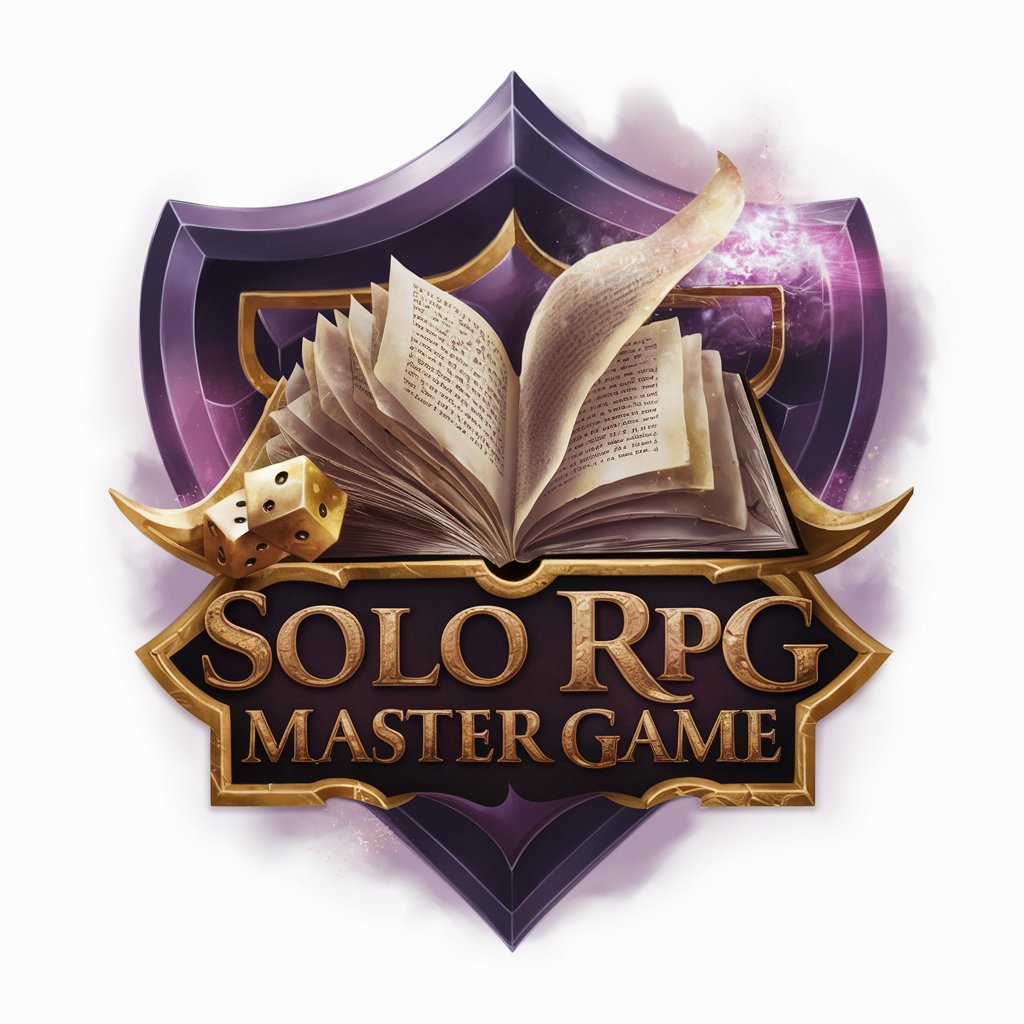
Travel Booking Assistant
AI-Powered Personal Travel Guide

LoL Build Master
AI-Powered, Personalized League of Legends Mastery

Frequently Asked Questions About Database Guru
What databases does Database Guru support?
Database Guru offers expertise in a wide range of database systems, including but not limited to MySQL, PostgreSQL, MongoDB, Cassandra, and Redis, covering both SQL and NoSQL paradigms.
Can Database Guru help with database design?
Yes, it provides detailed advice on database schema design, normalization, and denormalization strategies to ensure your database is efficient and scalable.
How can Database Guru assist with performance tuning?
It delivers insights on indexing, query optimization, and configuration settings to enhance the speed and responsiveness of your database operations.
Does Database Guru provide code for database operations?
Absolutely, it can generate specific DDL and DML queries for creating tables, inserting data, updating records, and more, tailored to your chosen database system.
Can I get advice on database security from Database Guru?
Certainly, it offers recommendations on securing your databases against SQL injection, data breaches, and other security threats, including best practices for access control and encryption.

